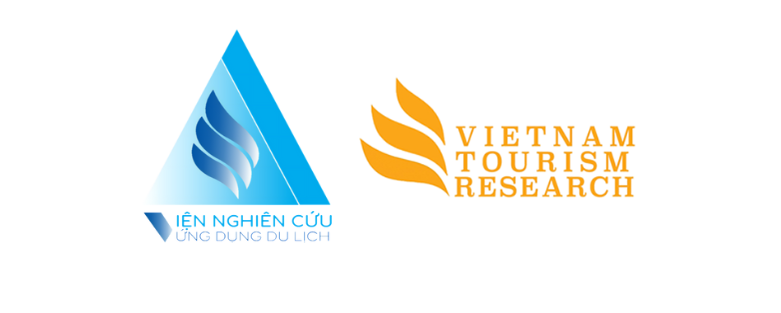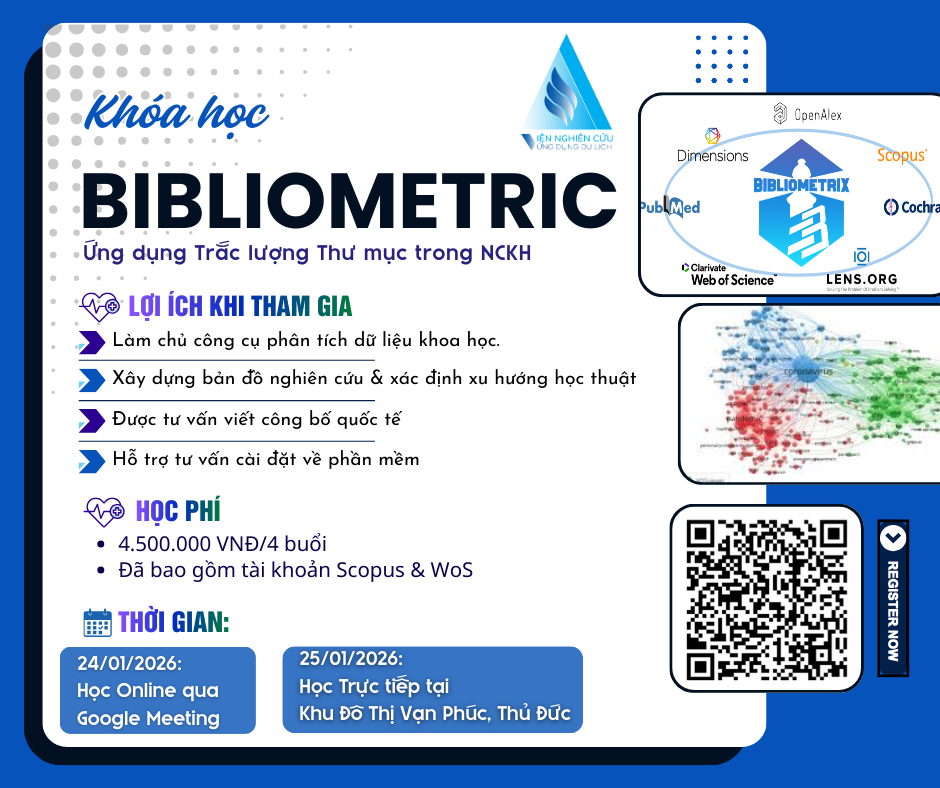This post is also available in:
Tiếng Việt (Vietnamese)
The World Tourism Conference (WTC) 2022, held in Kota Kinabalu, Sabah, Malaysia, under the theme “Tourism Futures Reimagined,” provided a critical forum for discussing the recovery and sustainable development trajectory of the tourism industry post-COVID-19
This paper synthesizes the main addresses from the opening ceremony, highlighting global challenges, recovery strategies, the importance of sustainability (including ESG and carbon neutrality), the role of community-based tourism, and the necessity of multi-sectoral collaboration to build a more resilient and inclusive future for tourism
Delegates from over 60 countries convened to share profound insights and successful experiences, particularly from the Asia-Pacific region and Sabah, Malaysian Borneo—a premier destination renowned for its rich natural and cultural diversity.
Introduction
The global tourism industry has faced unprecedented impacts from the COVID-19 pandemic, necessitating a comprehensive reassessment of operational models and development strategies. Against this backdrop, the sixth World Tourism Conference (WTC) 2022, co-organized by the Ministry of Tourism, Arts and Culture Malaysia and the World Tourism Organization (UNWTO), served as a pivotal platform for thought leaders, policymakers, experts, and industry representatives from around the world to “reflect, reset, and review” lessons learned for a more sustainable future. Notably, this event marked the second time Kota Kinabalu, Sabah, has been the host city in 12 years, reaffirming its status as a major tourism destination and an attractive gateway.
Conference Objectives The primary objective of WTC 2022 was to deliberate on the most pressing issues, innovations, trends, challenges, and strategies that could foster the recovery and resilience of the tourism sector in a post-pandemic world. With over 1,000 delegates from more than 60 countries participating, the conference aimed to promote practical solutions and strategic visions for the future of the industry.
Context and Status of Global Tourism Recovery The COVID-19 pandemic brought the tourism industry to a severe standstill, with border closures and travel restrictions worldwide. However, according to the latest data from the UNWTO, key source markets from Europe and the Americas have begun to reopen, leading to a steady increase in international tourist arrivals. International arrivals in the first nine months of 2022 more than doubled compared to the same period in the previous year and were projected to reach approximately 65% of pre-pandemic levels by year-end. Despite facing “headwinds” from the global economy, such as geopolitical conflicts, rising interest rates, and escalating energy prices, experts remain optimistic about a robust and stable recovery for the tourism sector.
Key Findings and Discussion
Reimagining Tourism towards Sustainable Development
The theme “Tourism Futures Reimagined” calls for a transformation within the industry, not merely to return to pre-pandemic norms but to advance towards a sustainable, inclusive, and shock-resilient tourism model. This requires the integration of Environmental, Social, and Governance (ESG) principles into business operations, with companies increasingly adopting science-based targets and governments implementing Net Zero strategies.
Energy Transition and Carbon Neutrality: The conference underscored the role of scientific experts in driving a sustainable tourism recovery, particularly in anticipating the energy transition and achieving carbon neutrality.
Ecological Footprint and Country Overshoot Day: Discussions on “Country Overshoot Day” highlighted the extent to which a nation’s demand on ecological resources exceeds what Earth can regenerate within that year. Qatar was cited as having the earliest date, while Jamaica had the latest. Malaysia’s date was May 16, indicating an urgent need for ecological footprint management.
Tourism’s Carbon Contribution: Transportation was identified as the largest contributor to the global tourism carbon footprint (49%), with air travel being the highest-emitting mode. This calls for initiatives such as the use of aviation biofuels and the development of low-carbon cities and islands.
Sabah’s Tourism Recovery and Development Strategy
The Sabah government has implemented a five-year development plan (2021-2025), in which tourism is one of the three main economic pillars, alongside agriculture and industry.
Community-Based Rural Tourism (CBRT): Sabah has successfully developed CBRT, empowering local communities through skills enhancement and product innovation. Pilot projects in Kadamayan (Kota Belud) and Kiulu (Tuaran) have generated over 100 business operators. Notably, the village of Batu Puteh in Kinabatangan was honored by the UNWTO as one of the “Best Tourism Villages” in 2021.
Recovery and Promotion Initiatives: Sabah has actively implemented international destination promotion campaigns, media familiarization programs, and special incentives for airlines. As of September 2022, Sabah had welcomed 1.2 million domestic and international visitors, generating an estimated tourism revenue of 2.1 billion Ringgit.
Infrastructure and Human Capital Development: Sabah’s 2023 budget allocates 134.5 million Ringgit for tourism development, including upgrading facilities and developing human capital for CBRT. The establishment of the Sabah Convention Bureau (SCB) next year will also boost business tourism (MICE).
Ecotourism and Conservation: Sabah was commended for successfully balancing conservation with nature-based tourism. Areas such as Mount Kinabalu (a UNESCO World Heritage Site, Biosphere Reserve, and Global Geopark), Danum Valley, and Maliau Basin are prime examples of conserving invaluable natural resources while developing educational and research tourism.
Challenges and Opportunities for Innovation
In addition to economic and geopolitical challenges, the tourism industry faces labor shortages due to pandemic-related layoffs and difficulties in re-hiring. While developed countries can support workers through financial mechanisms, developing nations require more innovative solutions, potentially through collaborations between governments, the private sector, and insurance companies.
New Opportunities: The blurring of lines between work, home, leisure, and travel has created new niche markets, such as digital nomads. The conference sessions also explored future scenarios and potential pathways for change, emerging niche markets, and ESG investment opportunities.
Technological Innovation: Technology can support tourism through “smart guides” on mobile devices, providing travel information and navigation, especially for tourists wishing to avoid crowds.
Health and Safety: Tourists increasingly demand that destinations provide excellent health and medical services, particularly in the wake of the pandemic.
Multi-sectoral Collaboration: Collaboration among government, the private sector, academia, and communities is essential for finding sustainable solutions. Encouraging profit-sharing with indigenous communities, as exemplified in Peru where a community receives 60% of profits in a joint venture with the private sector, is a key strategy.
Cultural Experience and Local Identity
The conference was not only an academic forum but also a profound cultural experience, showcasing the arts and heritage of Malaysia and Sabah.
Cultural Performances: Traditional dances, music, and fashion demonstrated the “muhibbah” (spirit of unity) of the Malaysian people, especially in Sabah with its diversity of over 30 ethnic groups.
Handicrafts: The handcrafted beaded lanyards made by the Rungus community in Kudat served as a symbol of friendship and connection.
Conclusion
The World Tourism Conference 2022 in Sabah reaffirmed the global tourism industry’s commitment to building a resilient, sustainable, and inclusive future. Discussions centered on reshaping post-pandemic strategies, integrating ESG principles, promoting ecotourism and community-based tourism, harnessing technology, and strengthening multi-sectoral collaboration. With the profound insights and practical examples shared, WTC 2022 has laid the groundwork for concrete actions and heralded a new era for global tourism, where economic development is harmonized with environmental conservation and social well-being.









